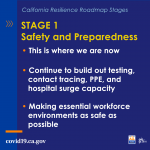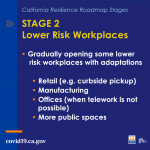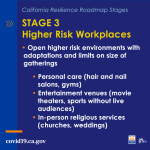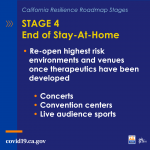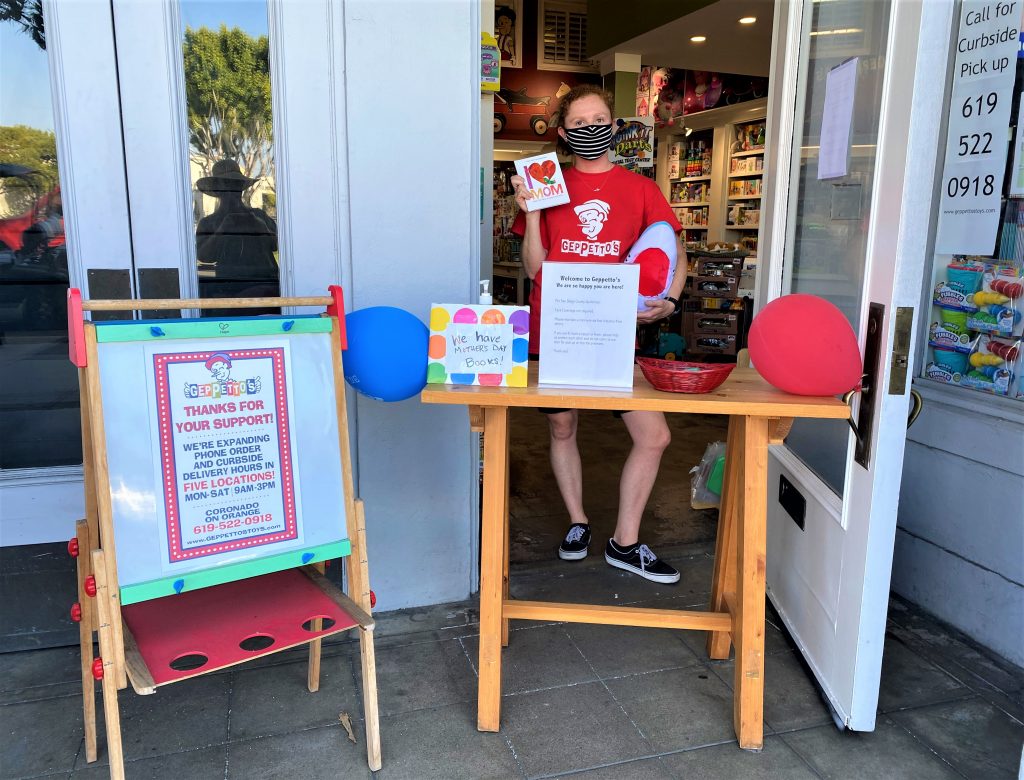
Things are slowly moving forward for the reopening of certain businesses throughout the state and the county, and the Coronado City Council discussed what this means in Coronado at a special meeting on Friday afternoon. City Manager Blair King said that written orders came down from Governor Newsom Thursday night at midnight for the Phase 2 opening starting Friday. This also includes regulations from Public Health Officer Dr. Wilma Wooten for San Diego County. “We are quickly disseminating the information and getting it to businesses,” he commented. Friday marked the beginning of Phase 2A with Phase 2B to follow in a week or two depending on how this phase progresses and the progression of COVID-19 cases in the county.
In order for businesses to reopen they must complete and post a Safe Reopening Plan (SRP) that ensures employee and customer safety, sanitation, physical distancing, and communication. The following business are now approved for retail curbside pick-up service:
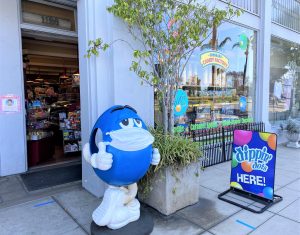
- Bookstores
- Jewelry Stores
- Toy Stores
- Clothing and Accessory Stores
- Shoe Stores
- Home and Furnishing Stores
- Sporting Goods Stores
- Antique Stores
- Music Stores
- Florists
- Picture Frame Stores
- Stationery or Paper Stores
- Office Supply Stores
- Candy Stores – with prepackaged goods
- Cigar or Smoke Shops (no congregating or trials allowed)
- Beer, Wine and Liquor Stores (no tasting allowed)
- Specialty Food Stores (no tasting)
- Vehicle Rental including Golf Carts
- Fine Art Stores
- Novelty Shops
The council unanimously approved five motions. The first was to endorse the list of businesses re-opening, which was created with the scope of Coronado businesses in mind. The second motion was to define specifics on retail curbside pickup. One definition was to allow delivery of goods outside of the interior retail space, and the other allowing delivery in immediate proximity to the front door in a foyer or vestibule. Councilmember Heinze suggested combining the two definitions to make it more concise, so that goods can be picked up either in an inside foyer or just outside the doorway of the store. Councilmember Benzian asked about the impact of the six-foot markers placed on the Orange Avenue sidewalks for restaurant social distancing. King said that the city will look at these to make them work and not cause congestion.
The third motion was to take down the restaurant curbside pick up signs to allow more parking for retail shoppers. King mentioned that the signs will be taken down after this weekend. In the fourth motion, staff asked to start parking enforcement again on May 18, but the council decided to delay this motion and revisit it at the May 19 council meeting. They felt this would allow for the opportunity to re-evaluate how things are progressing and make a final decision at that time. Police Chief Chuck Kaye was asked to weigh in and he said that they have definitely seen an increase in pedestrian and automobile traffic. Councilmember Heinze pointed out that it would be good to put this in place by the Memorial Day holiday weekend. King said that this would help manage traffic flow and parking and can be done with a day’s notice.
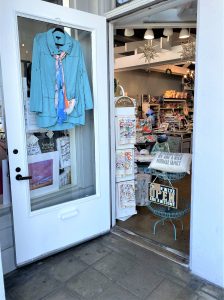
The final motion was initiated by Mayor Bailey as he stated he wants to stand up for the small businesses in our community. He pointed out that original state estimates projected 25.5 million coronavirus cases as justification for all the business closures, but the curve has been flattened and those numbers have not come to fruition. San Diego currently has 355 COVID-19 patients in its hospitals, which are also struggling due to lack of regular patients. He advocated for sending a letter to the county and the state to ask them to apply all the safety standards equally and treat large businesses and small businesses the same. After deliberations, the council members agreed to have staff draft a letter to be reviewed at the next meeting, outlining the inequality of the guidelines being applied to big businesses versus small businesses, highlighting that Coronado has eschewed big business and our economy depends on small businesses.
Timing of the future of reopening businesses in California is uncertain but will next move to the second stage of Phase 2 which includes: destination retail, including shopping malls and swap meets, personal services, including car washes, pet grooming and tanning facilities. Office-based business (although telecommuting is encouraged), dine-in restaurants, schools and childcare facilities, and outdoor museums and open gallery spaces are also in this category. Future phases of the reopening process include personal services such as nail salons, tattoo parlors, gyms and fitness studios, entertainment venues with limited capacities, such as movie theaters, indoor museums and libraries, community centers with pools, playgrounds and picnic areas, limited-capacity religious services and cultural ceremonies, nightclubs, concerts, live audience sports, festivals, theme parks, and hotels/lodging for leisure and tourism.
California’s stages of re-opening:




